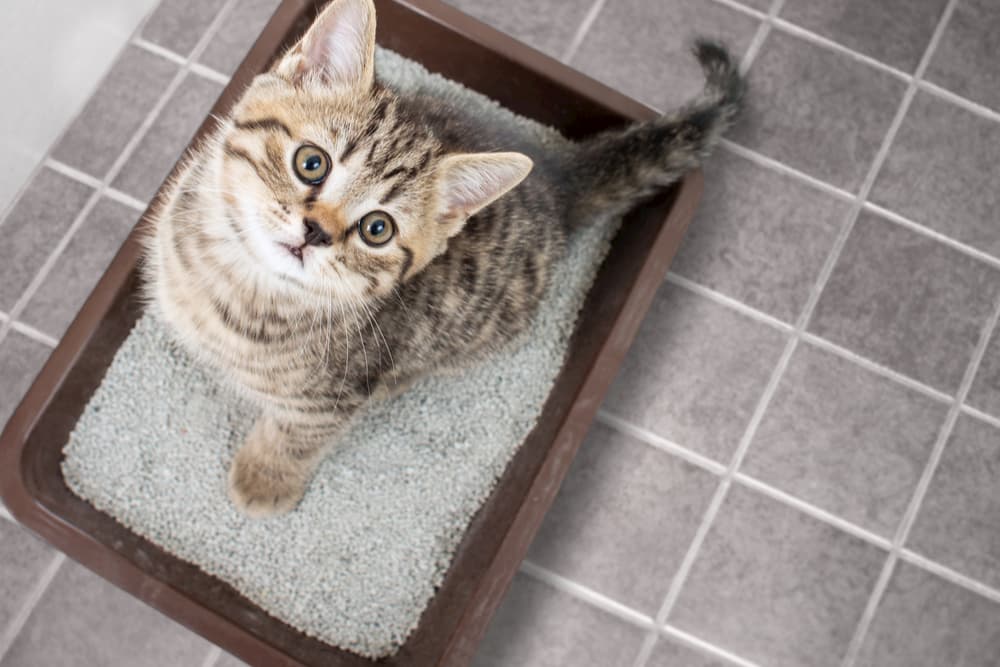Avoid Plumbing Problems: Never Flush Cat Poop Down Your Toilet - Expert Guidance
Avoid Plumbing Problems: Never Flush Cat Poop Down Your Toilet - Expert Guidance
Blog Article
What're your thoughts about Can You Flush Cat Poop Down The Toilet??

Introduction
As feline proprietors, it's vital to be mindful of how we take care of our feline buddies' waste. While it may seem practical to flush feline poop down the bathroom, this method can have harmful repercussions for both the atmosphere and human health and wellness.
Alternatives to Flushing
Thankfully, there are much safer and much more responsible means to take care of pet cat poop. Think about the complying with options:
1. Scoop and Dispose in Trash
The most typical method of disposing of pet cat poop is to scoop it into an eco-friendly bag and throw it in the garbage. Make sure to make use of a devoted trash scoop and take care of the waste quickly.
2. Usage Biodegradable Litter
Go with biodegradable feline litter made from products such as corn or wheat. These trashes are environmentally friendly and can be securely dealt with in the garbage.
3. Bury in the Yard
If you have a yard, consider burying feline waste in an assigned location away from vegetable gardens and water sources. Be sure to dig deep enough to prevent contamination of groundwater.
4. Mount a Pet Waste Disposal System
Buy a family pet waste disposal system especially made for feline waste. These systems utilize enzymes to break down the waste, minimizing smell and ecological impact.
Health Risks
Along with environmental issues, flushing feline waste can also position wellness risks to humans. Feline feces might have Toxoplasma gondii, a parasite that can cause toxoplasmosis-- a possibly severe ailment, especially for pregnant females and individuals with damaged immune systems.
Ecological Impact
Flushing feline poop introduces unsafe microorganisms and bloodsuckers into the water system, posing a considerable risk to marine communities. These impurities can adversely impact marine life and concession water top quality.
Conclusion
Responsible animal ownership prolongs past giving food and sanctuary-- it additionally entails correct waste monitoring. By avoiding flushing feline poop down the toilet and choosing alternative disposal methods, we can decrease our ecological footprint and shield human health.
Why Can’t I Flush Cat Poop?
It Spreads a Parasite
Cats are frequently infected with a parasite called toxoplasma gondii. The parasite causes an infection called toxoplasmosis. It is usually harmless to cats. The parasite only uses cat poop as a host for its eggs. Otherwise, the cat’s immune system usually keeps the infection at low enough levels to maintain its own health. But it does not stop the develop of eggs. These eggs are tiny and surprisingly tough. They may survive for a year before they begin to grow. But that’s the problem.
Our wastewater system is not designed to deal with toxoplasmosis eggs. Instead, most eggs will flush from your toilet into sewers and wastewater management plants. After the sewage is treated for many other harmful things in it, it is typically released into local rivers, lakes, or oceans. Here, the toxoplasmosis eggs can find new hosts, including starfish, crabs, otters, and many other wildlife. For many, this is a significant risk to their health. Toxoplasmosis can also end up infecting water sources that are important for agriculture, which means our deer, pigs, and sheep can get infected too.
Is There Risk to Humans?
There can be a risk to human life from flushing cat poop down the toilet. If you do so, the parasites from your cat’s poop can end up in shellfish, game animals, or livestock. If this meat is then served raw or undercooked, the people who eat it can get sick.
In fact, according to the CDC, 40 million people in the United States are infected with toxoplasma gondii. They get it from exposure to infected seafood, or from some kind of cat poop contamination, like drinking from a stream that is contaminated or touching anything that has come into contact with cat poop. That includes just cleaning a cat litter box.
Most people who get infected with these parasites will not develop any symptoms. However, for pregnant women or for those with compromised immune systems, the parasite can cause severe health problems.
How to Handle Cat Poop
The best way to handle cat poop is actually to clean the box more often. The eggs that the parasite sheds will not become active until one to five days after the cat poops. That means that if you clean daily, you’re much less likely to come into direct contact with infectious eggs.
That said, always dispose of cat poop in the garbage and not down the toilet. Wash your hands before and after you clean the litter box, and bring the bag of poop right outside to your garbage bins.
https://trenchlesssolutionsusa.com/why-cant-i-flush-cat-poop/

I came across that piece of writing about Don’t flush cat feces down the toilet while doing a lookup on the web. Liked our blog? Please share it. Let somebody else find it. I cherish reading our article about Can You Flush Cat Poop Down The Toilet?.
Get Estimate Report this page